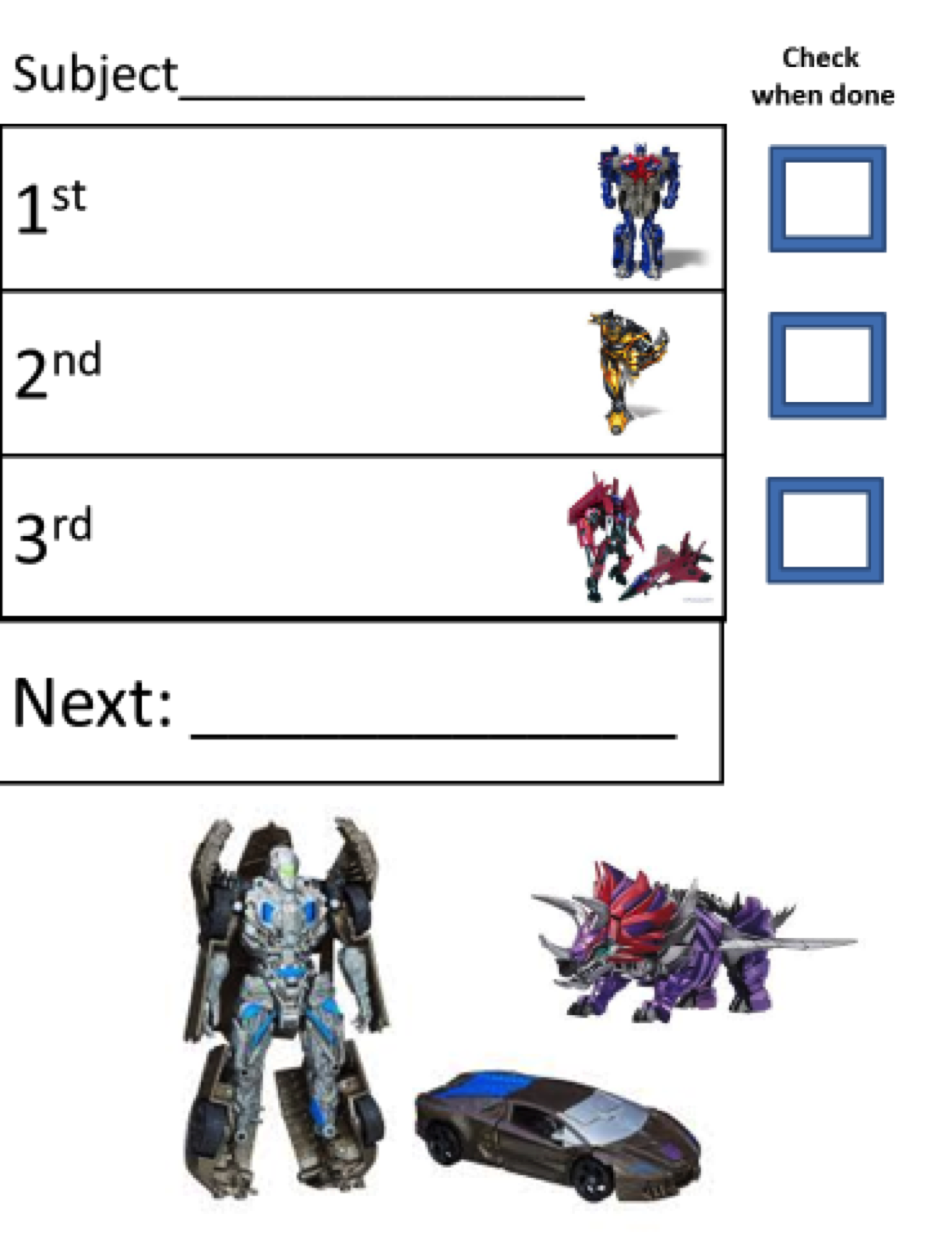Since the inception of this blog, we have explored a variety of specific strategies. I encourage all educators and parents to be creative, and mix and match to best meet the individual needs of your child and/or student. In a previous blog, we learned that mini-maps can help to prevent behavioral difficulties related to academic tasks.

Often, teachers note that a common antecedent or trigger to behavioral difficulties is the presentation of academic tasks.
The behaviors can range from a verbal protest to a meltdown when students feel overwhelmed by school work. The first question to ask, of course, is what is there about the work that makes the student feel so overwhelmed? Does the page look too busy? Is too much handwriting involved? Are there too many problems? Is it too difficult or too easy?
The schedule says it is time for math. The student struggles consistently with math and typically puts his head down and produces little or no work. But with a mini-map, the student feels more able to get started and move forward.
The mini-map is often a small checklist and can be decorated with a student’s interest to increase focus and motivation. This checklist then breaks down the expectations during math into smaller chunks. The mini-map or checklist might say something like this:
- Warm up activity ______
- Test Review ______
- Do problems 3-10 ______
- Discuss with partner______
Next: 5 minute break
This mini-map often reduces the anxiety associated with challenging academics so that the student is more likely to get started and even more likely to continue.
This is especially true if there is a motivator at the end of the work. Try it and see if there is some progress in dealing with work avoidance.
Example:
And in another blog, we discussed the benefits of self-evaluation.
Why not combine these two effective strategies to further strengthen independence in a variety of settings. It might look something like this.
What innovative combination of strategies might you create to better meet the needs of an individual with an autism spectrum disorder?
by Lisa Rogers
The Education (K-12) Blogs and Special Ed Q & A are written and maintained weekly by Lisa Rogers with Educating Diverse Learners. Lisa received her M.A. in Special Education with an endorsement in the area of individuals with severe disabilities. Mrs. Rogers has also created products that have been used throughout the state of Texas for training purposes. Through the Association for Texas Professional Educators [ATPE], Ms. Rogers has produced an online course that targets the importance of visual strategies for student with autism spectrum disorders and just released her highly anticipated book titled: Visual Supports for Visual Thinkers.





What modifications do U recommend for and 18 year old that experienced school refusal since 7 grade. Currently does curriculum on computer when participating in school
Would you be able to provide a bit more information about the nature of the refusal? Is he or she able to articulate the reasons for the school refusal? Are there any good guesses?